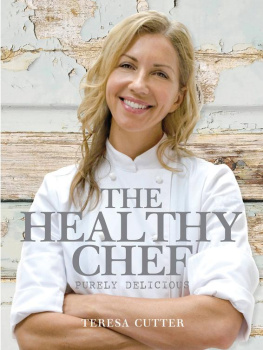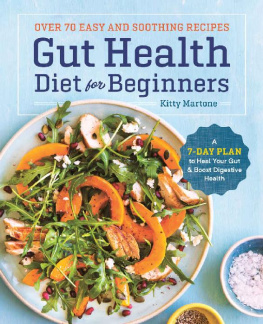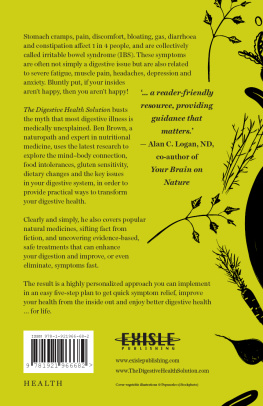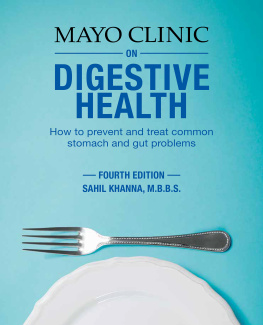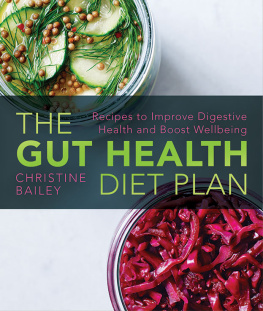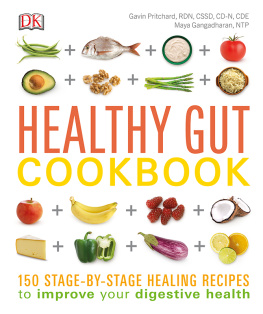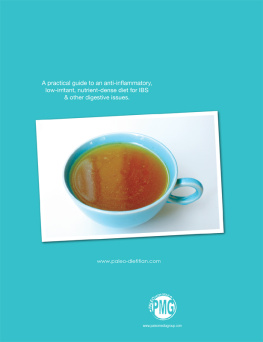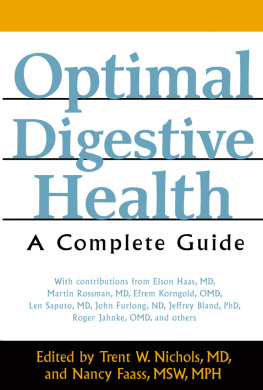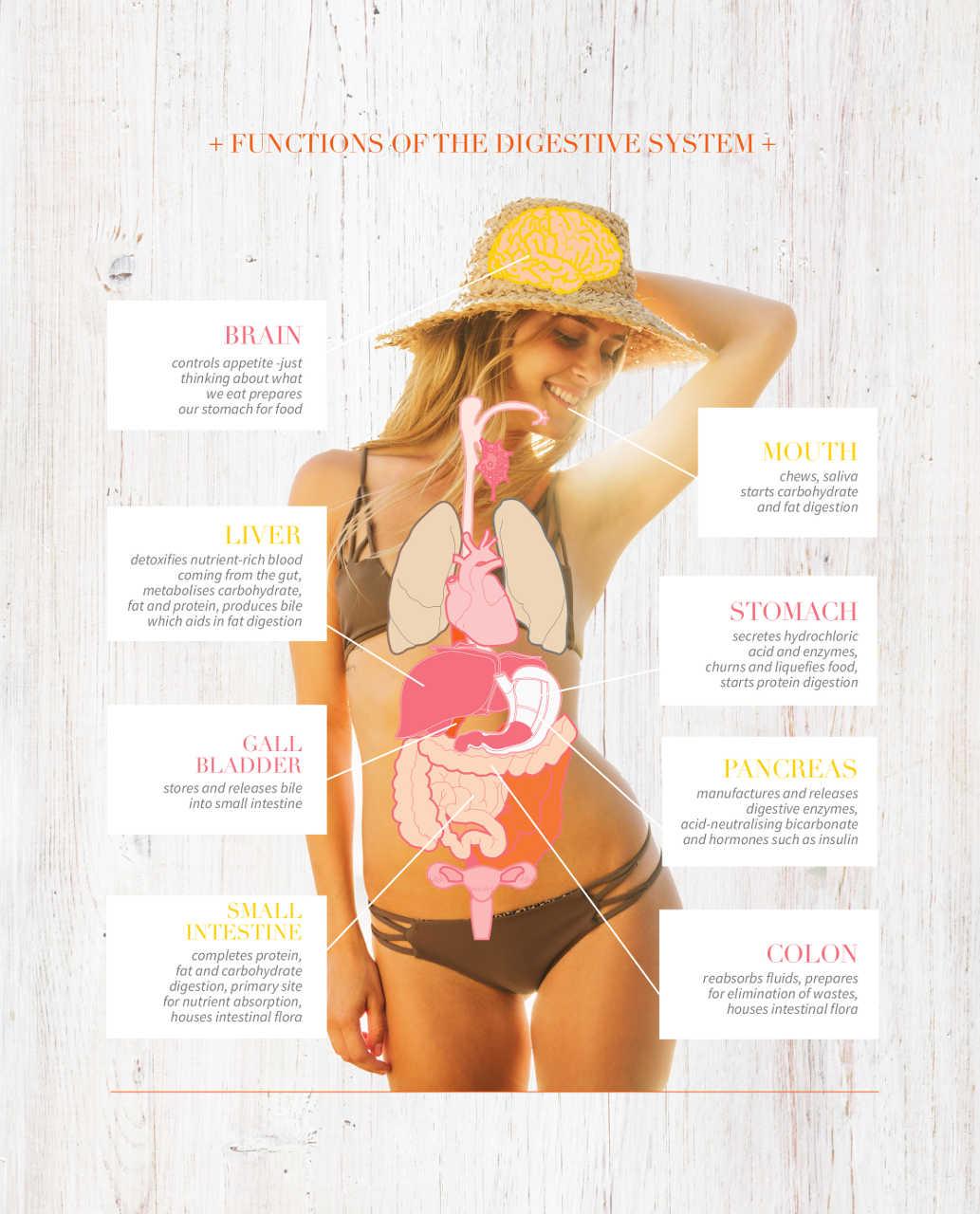THE FOUNDATION OF
GOOD HEALTH LIES IN HEALTHY
DIGESTIVE FUNCTION
WHY THIS BOOK WAS WRITTEN For as long as I can remember, the journey toward better digestive health has been in the forefront of my existence. I have vivid memories of being five years old and my great grandmother trying to heal my torturous digestive system with spoonfuls of castor oil. My mother would take me from doctor to doctor, frantically trying to find an answer to my digestive woes, but inevitably coming home with packets of pharmaceutical drugs that made me sick.
As Ive grown, I have got to know my body inside and out. I know what nurtures it and what irritates it. Its taken a lifetime to explore my constitution of health and the many possibilities that exist to help my body function and heal.
The inspiration for this book stems from my journey and the hundreds of emails I receive from people on their personal quest for better digestive health. It began as a simple eating plan but evolved to something much greater as digestion is far from simple.
DIGESTIVE HEALTH is a broad term that has a different meaning to each of us. We are all so different and have our own unique digestive systems. The foods that work for some may not work for others, which is why its so important to stay positive and aim to keep your body as healthy as you possibly can.
I believe that food is most healing when it is close to it's original state and has the properties to heal and nourish. The Healthy Chef philosophy is a realistic and sensible approach to healthy eating that will last a lifetime. I encourage you to make small diet and lifestyle changes that will have positive outcomes to your health in the future.
Enjoy the journey of healthy eating with balance, wisdom and moderation.
CHAPTER 1: THE ROLE OF DIGESTION IN YOUR HEALTH + WELLBEING
The primary role of the digestive system is to break down and absorb food, providing our body with the fuels and nutrients it requires to function optimally. What we eat and drink builds the foundation of our health. We eat to obtain nutrients for our muscles and organs, to promote the growth and repair of our tissues, and to support our immune system in fighting disease.
Nutritional medicine places a great emphasis on the digestive tract the primary area where we receive the goodness from the foods that we consume. A healthy digestive system leads to a healthier body and mind.
+ HOW WE DIGEST +
The digestive process actually starts long before food reaches your stomach. We begin the digestive process just by smelling and thinking about the food we are going to eat. Cutting, slicing, stirring, choosing a dish off a menu or walking past the stalls at the local farmers market all stimulate and prepare our bodies for the digestive processes ahead.
When food is chewed, it is broken down and mixed with saliva, which contains enzymes that initiate carbohydrate and fat digestion. Your food then moves to your stomach, where it is churned up and broken down into even smaller particles. The hydrochloric acid that is produced by the stomach activates protein digestion and helps to kill off any pathogens that may have been ingested with the food.
The small intestine is where most of your digestion and nutrient absorption takes place. Nutrients are transported from your intestines to the liver via blood vessels. The main functions of the liver include: nutrient and hormone metabolism, bile production for fat digestion, storage of vitamins and minerals, and detoxification. These functions make the liver a vital organ without which the tissues of the body would quickly die from lack of energy and nutrients.
After the small intestine, food is transported into the large intestine, which consists of the colon and rectum. The main functions of the large intestine include formation and excretion of faeces, absorption of water and minerals, and the synthesis of vitamin K by beneficial gut bacteria. Cells in the colon secrete mucus to lubricate and protect the walls of the large intestine while faeces move through the area. The faeces are then stored in the rectum, ready for elimination from the body. If faeces remain in the colon for too long, constipation can occur and toxins may be reabsorbed back into the bloodstream.
The entire process of digestion takes between 20 to 30 hours. Stretching over nine metres long, the digestive system will process an astounding 60 tonnes of food over the average human lifespan. That is a huge amount of traffic passing through, showing just how important it is to fuel our body with nourishing, healthy foods.
DIGESTION + LIVER FUNCTION
The state of your liver has a huge impact on how your body functions and how you look and feel. Liver dysfunction is basically a liver that is overloaded, toxic or sluggish that, in turn, will have a negative impact on your immune system, digestive system, nervous system, metabolism and hormones. Eastern medicine practitioners have long considered the liver to be the most important organ of the body and vital in how our body performs.




